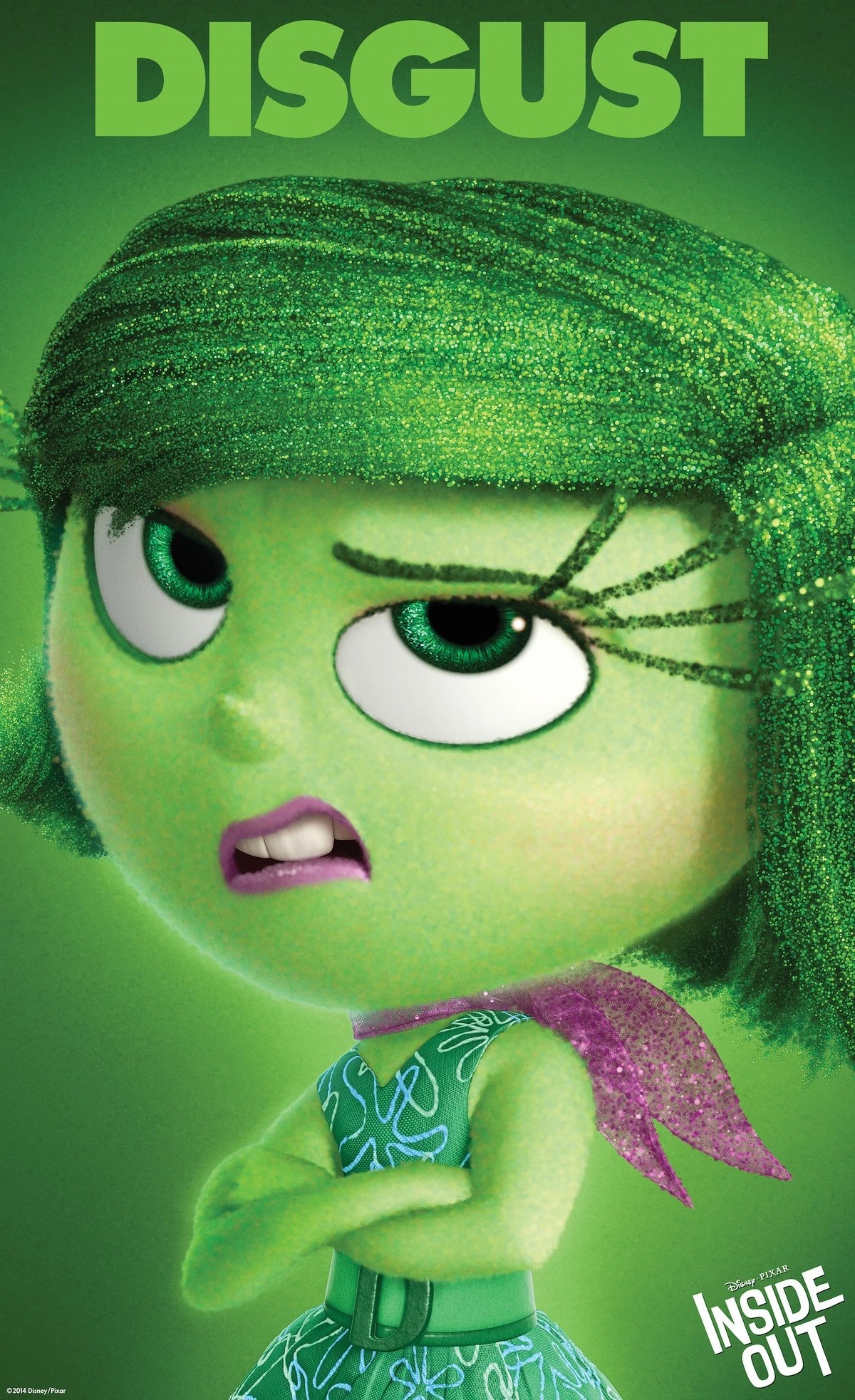Disgust is a complex emotion that plays a crucial role in our lives, influencing our choices and shaping our experiences. Within the framework of emotional understanding, the concept of "disgust inside out" offers a unique lens through which we can examine this often-misunderstood feeling. Unlike other emotions like joy or sadness, disgust can often be perceived as negative or unwarranted. However, it serves a vital purpose in protecting us from harmful situations and guiding our moral compass.
In the animated film "Inside Out," directed by Pete Docter, we see the personification of various emotions, including disgust, as they navigate the complexities of growing up. Disgust, voiced by Mindy Kaling, is portrayed as a sassy and self-assured character, who often critiques the choices of the protagonist, Riley. This character provides a humorous yet poignant exploration of how disgust influences our behavior and perceptions. The film not only entertains but also educates viewers about the intricate emotional landscape we all navigate.
As we delve deeper into the theme of "disgust inside out," it becomes evident that understanding this emotion can lead to greater self-awareness and emotional intelligence. Whether it manifests in our reactions to food, social situations, or moral dilemmas, disgust is an integral part of our emotional repertoire. By uncovering the layers of this emotion, we can learn to embrace it as a natural and necessary aspect of our human experience.
What is the Role of Disgust in Our Lives?
Disgust serves several crucial functions in human behavior. It acts as a protective mechanism, alerting us to potential dangers, particularly in terms of health and hygiene. Our instinctive aversion to certain foods or environments can prevent us from encountering harmful substances. Additionally, disgust plays a significant role in social interactions and moral judgments, influencing our perceptions of right and wrong.
How Does Disgust Develop Over Time?
The development of disgust is a fascinating journey that begins in early childhood. As children grow, they learn to navigate their environment and make judgments about what is safe or unsafe. This learning process is influenced by cultural norms, parental guidance, and personal experiences, leading to unique expressions of disgust across different individuals and communities.
Why is Disgust Often Misunderstood?
Disgust can sometimes be seen as an irrational or overly sensitive response to stimuli. This misunderstanding can lead to stigmatization, particularly in social contexts where individuals may judge others based on their disgust responses. By reframing our understanding of disgust, we can foster a more compassionate approach towards ourselves and others, recognizing that these feelings are natural and often rooted in deeper psychological processes.
How Can We Manage Our Disgust Responses?
Managing disgust involves developing a greater awareness of our triggers and responses. Here are some strategies to help navigate this complex emotion:
- Reflection: Take time to understand what triggers your disgust and why.
- Exposure: Gradually expose yourself to situations that elicit disgust to reduce sensitivity over time.
- Reframing: Change your perspective on the situation to see it in a different light.
- Mindfulness: Practice mindfulness techniques to stay present and observe your feelings without judgment.
What Can We Learn from Disgust in "Inside Out"?
The character of Disgust in "Inside Out" provides valuable insights into the importance of this emotion. Disgust serves as a guardian for Riley, protecting her from making choices that could lead to social embarrassment or physical harm. This representation highlights the necessity of embracing all emotions, including those that may appear negative at first glance.
Can Disgust Lead to Positive Outcomes?
While disgust is often viewed as an unpleasant emotion, it can lead to positive outcomes when managed effectively. For instance, feeling disgusted by unhealthy food choices can motivate individuals to adopt healthier lifestyles. Moreover, disgust can prompt discussions about moral issues, leading to social change and greater awareness of injustices.
Conclusion: Embracing Disgust Inside Out
Understanding the concept of "disgust inside out" allows us to appreciate the complexity of this emotion. Rather than shunning it, we can learn from it, using it as a tool for self-discovery and personal growth. By acknowledging the role of disgust in our lives, we can cultivate a deeper emotional understanding that enriches our interpersonal relationships and enhances our overall well-being.
Kickstart My Heart: A Journey Through Music And Life
Taste The Biscuit: A Culinary Journey Through Flavor
Unveiling The Secrets Behind The Highest Subway Surfers Score


